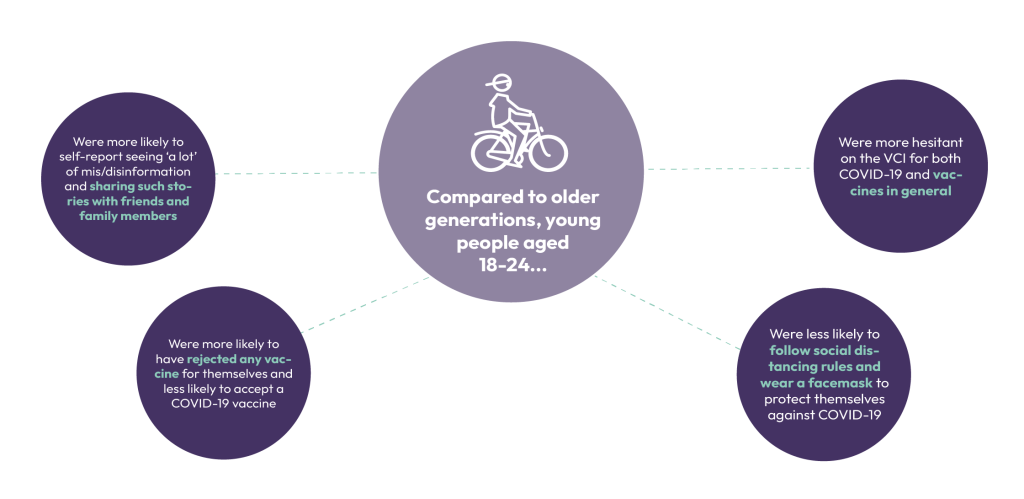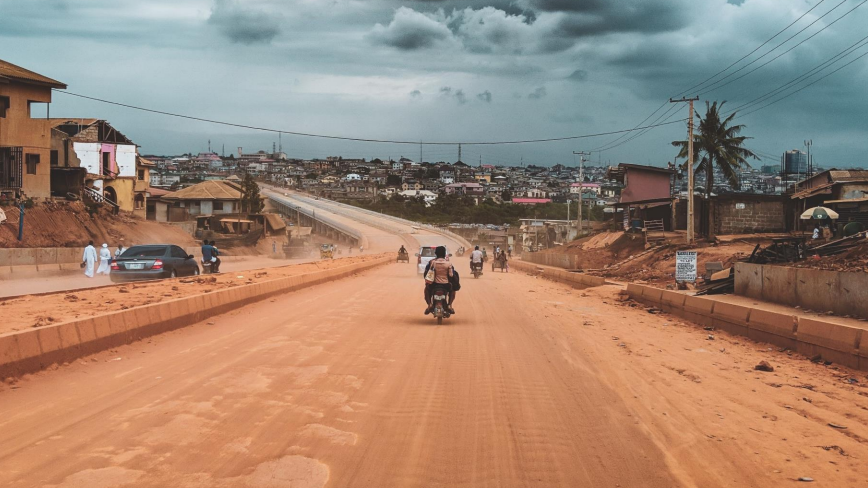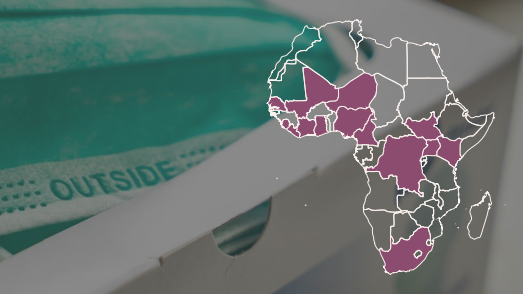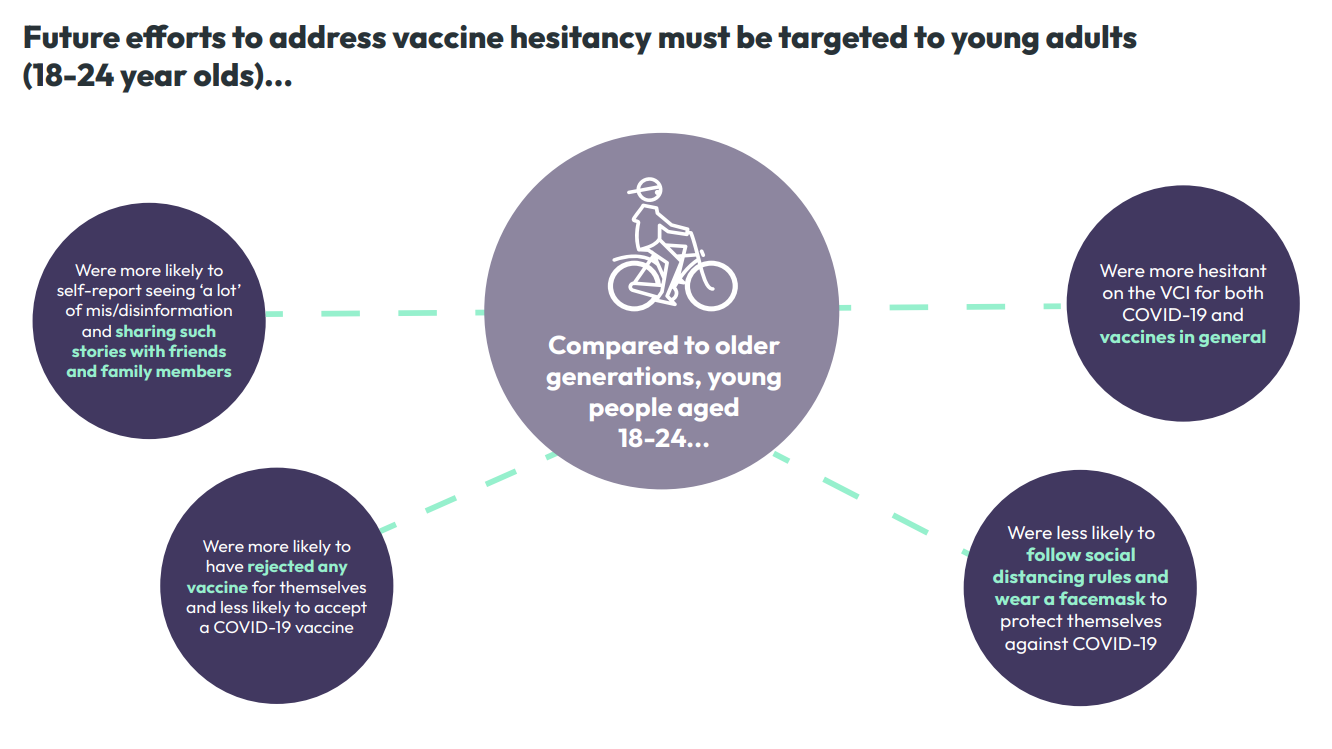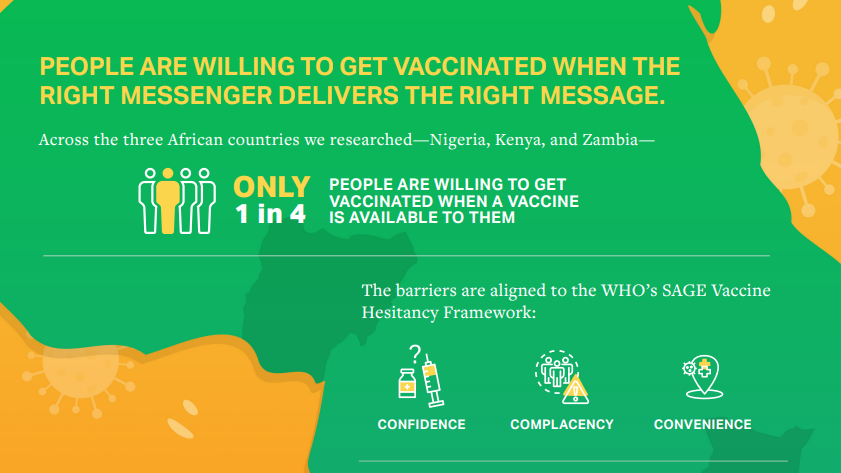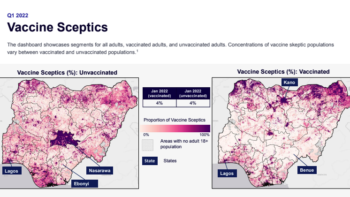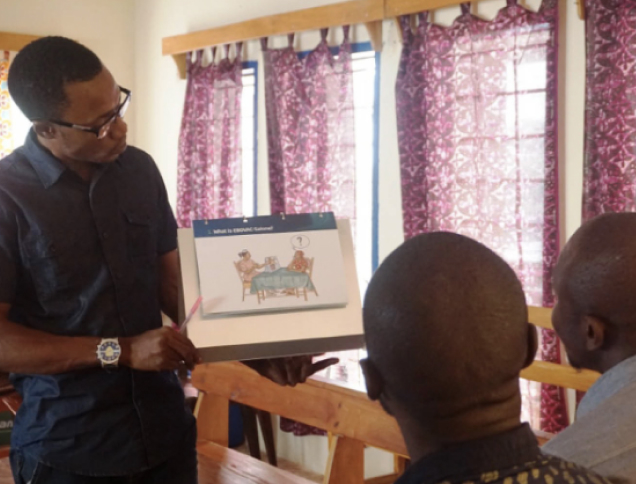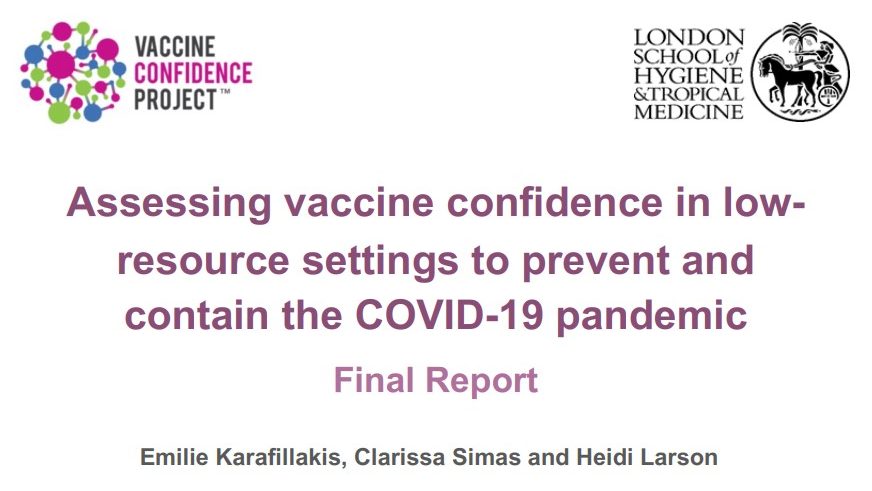Overview
In 2020, Africa Centres for Disease Control and Prevention (Africa CDC) and the VCP conducted a 15-country study measuring in COVID-19 Vaccine Perceptions in selected countries across Africa. The VCP team undertook a quantitative assessment in each of the 15 countries. The data was analysed, released and the report published by the Africa CDC in 2021. It stands out as one of the most scientific quantitative assessments of COVID-19 vaccine confidence in Africa.
To further this work, John Nkengasong, Director of the Africa CDC, asked Prof. Heidi J. Larson to co-convene a Vaccine Confidence Working Group together with the Africa CDC to allow a more coherent approach to vaccine hesitancy research across the Continent. The aim was to assemble a group that can take insights, develop strategies, and measure impact over time, and to learn lessons from localised success so they can be applied elsewhere on the continent.
Johnson & Johnson, the Bill & Melinda Gates Foundation, and Mercy Corps joined this coalition to support the work with both funding and expertise.
Methodology
The Working Group has conducted two waves of quantitative research over 2022, following an initial round of research in June 2020 prior to the COVID-19 vaccine rollout. Surveys are being carried out by ORB International among a nationally representative sample of 1,000 adults in each country. Interviews follow a random household probability sampling methodology, with samples designed to be proportional to the population distribution across each country.
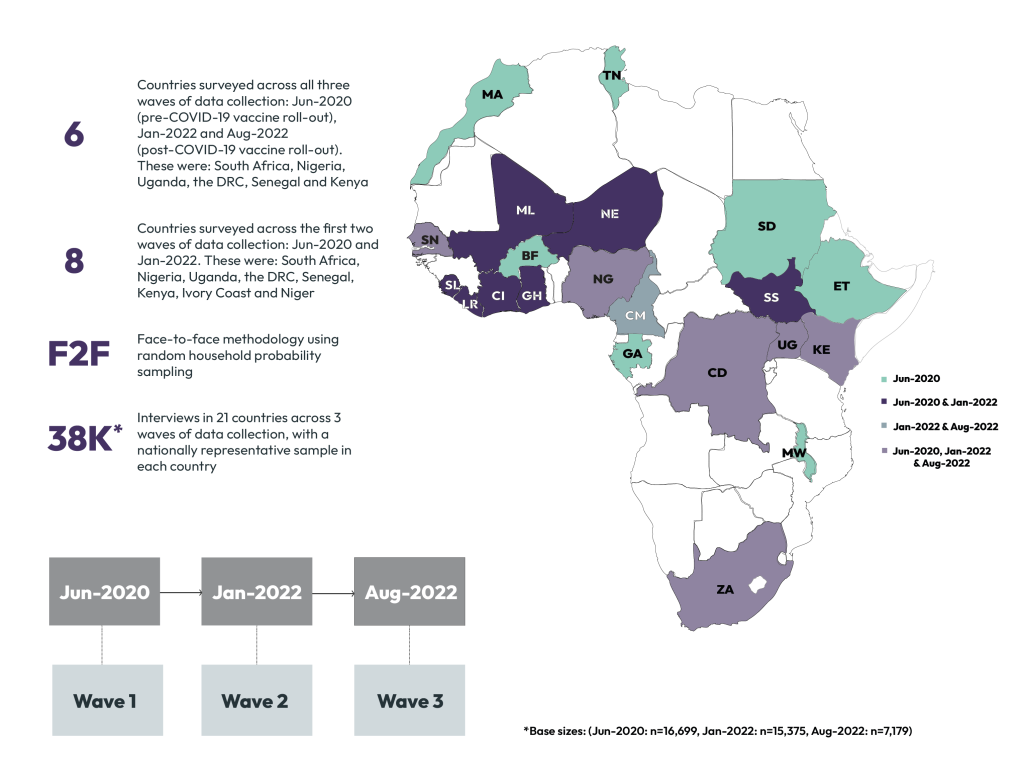
The objective of the research is to understand the underlying causes of vaccine hesitancy in each setting, to work with Africa CDC and the VCP’s local research partners to develop strategic recommendations for governments and their Ministries of Health, and to deploy this insight to inform implementation programmes and other interventions.
“Perceptions are very important. Vaccine hesitancy is something that is growing globally. This is just not with the COVID-19 vaccine, it was present even before COVID-19. We know the sentiment that some people have against some of the common childhood vaccines, so for the COVID-19 vaccine, it is really important for us to understand confidence levels across the continent, and what hesitancy is there.”
Dr. Raji Tajudeen, head of the division of public health institutes and research, Africa CDC, Source: Devex
Data
A subset of the raw data collected in this study can be downloaded here. These data contain individual responses to seven items on vaccine confidence as well as socio-demographic data and survey weights. The following data codes are used in the data file
country — country of surve
admin1 — country administrative uni
sex — respondent se
age — respondent ag
edu — respondent highest level of educatio
rel — respondent religio
emp – respondent employment statu
vci_ima – respondent answer to “vaccines are important for people of all ages
vci_imc – respondent answer to “vaccines are important for children
vci_saf – respondent answer to “overall, vaccines are safe
vci_eff – respondent answer to “overall, vaccines are effective
vcic_saf – respondent answer to “A new COVID-19 vaccine would be safe
vcic_imp – respondent answer to “A new COVID-19 vaccine would be important
vcic_eff – respondent answer to “A new COVID-19 vaccine would be effective
weight_country – country-level weigh
weight_admin1 – admin1-level weight
Findings
The initial findings from our 2022 research revealed a significant drop in confidence in the safety, importance, effectiveness and religious compatibility of both vaccines in general, and COVID-19 vaccines specifically in the eight countries that were surveyed in both June 2020 and January 2022 (figure 1A & 1B). Moreover, countries’ confidence levels were found to be highly sub-nationally heterogeneous, with pockets of hesitancy particularly concentrated in specific regions (Figure 1C, D, E & F).
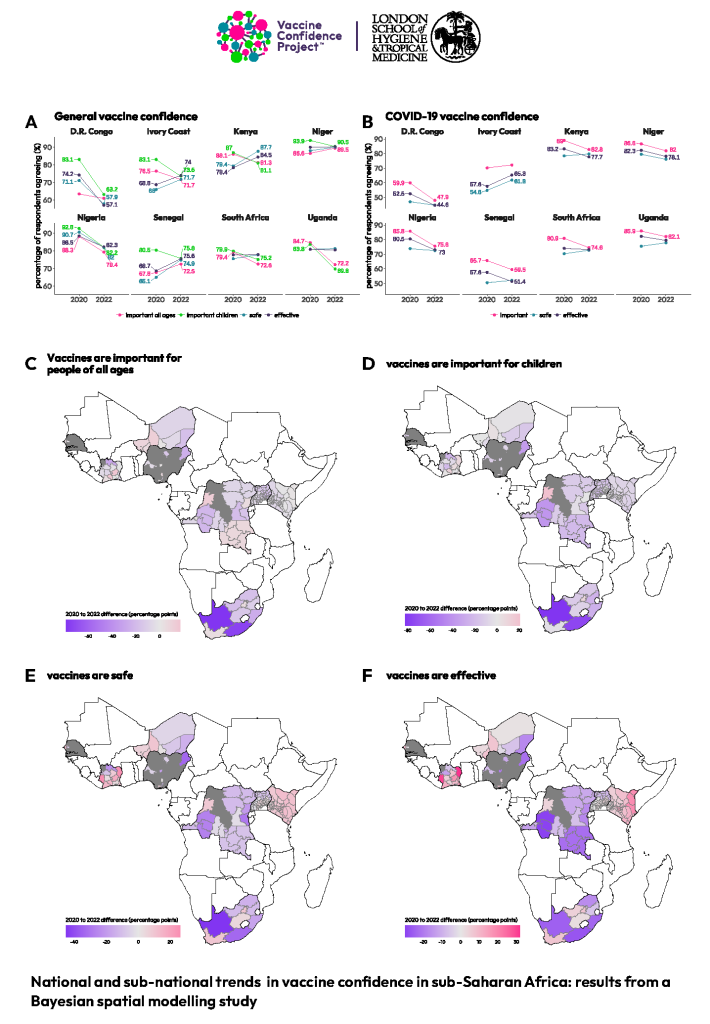
When six of these eight countries were surveyed again in August 2022, we found a slight resurgence of confidence, however, levels are still a long way off those of June 2020, prior to the COVID-19 vaccine being rolled out (figure 2).
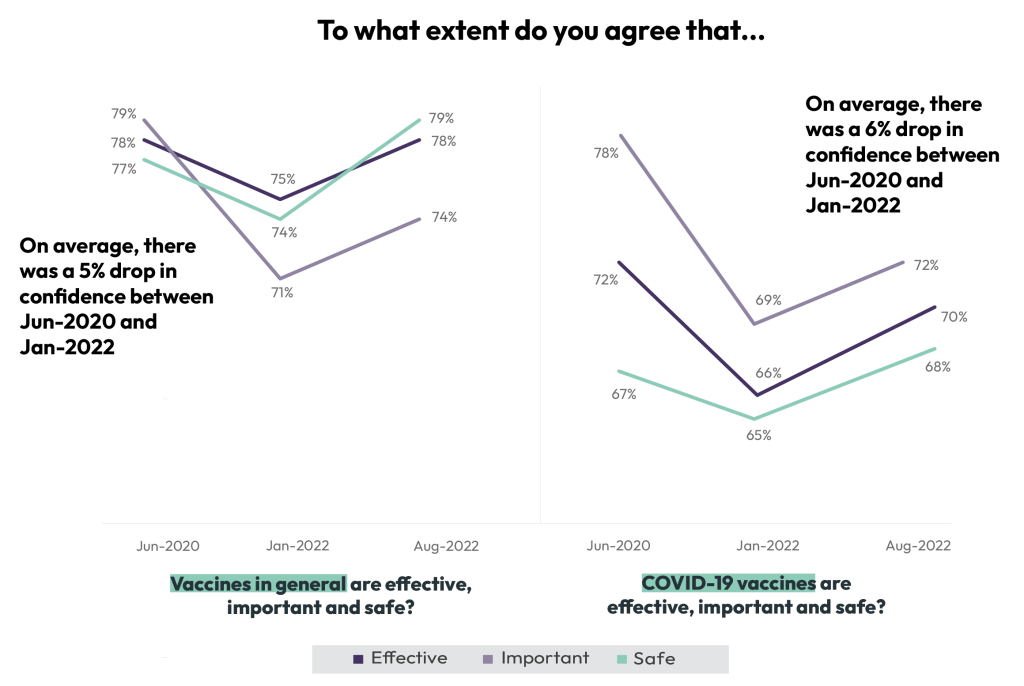
This matters because our data shows that vaccine confidence drives vaccine uptake, and there is also a relationship between vaccine confidence and intent to accept other types of vaccines (for example, malaria vaccines).
These worrying signs that drops in confidence may be translating into rejection of vaccines is supported by WHO-UNICEF estimates of routine childhood immunization coverage, which reveal the largest sustained decline in uptake of routine childhood immunisations in almost three decades. Though uptake has declined in all world regions, there are pronounced setbacks in low- and middle-income countries, notably in South East Asia and Africa, where most unvaccinated children remain and where there has been a surge in outbreaks of preventable diseases over the past year. Although disruptions to vaccine supply and delivery have played a significant role in this, our research suggests that declines in the vaccine confidence could also be having a negative impact on vaccination decisions (and therefore levels of vaccination coverage).
What is more, our surveys found that young people aged 18-24 were the most likely to be vaccine hesitant. This is highly consequential given that Africa needs to vaccinate 100 million people against COVID-19 in the next 12 months – 70% of whom are youth.
